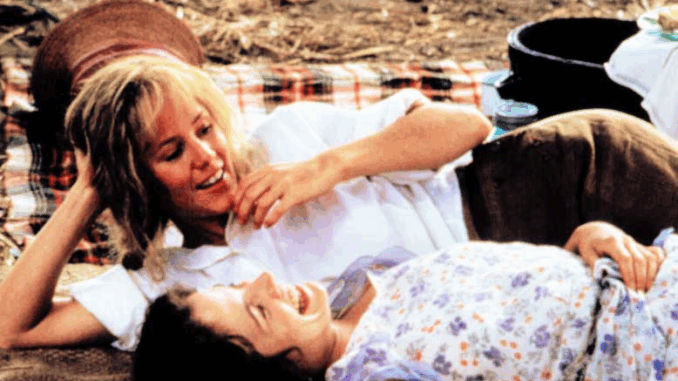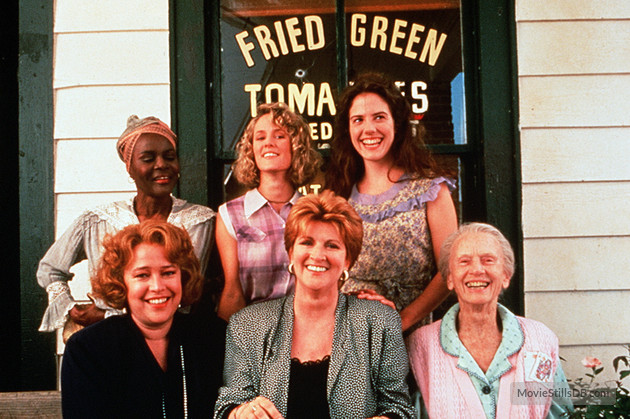
Reimagining a Classic for a New Generation of Audiences
A Story That Still Matters
Fried Green Tomatoes, the 1991 film based on Fannie Flagg’s novel, remains a beloved classic, not just for its storytelling but for its timeless themes—friendship, identity, resilience, and the quiet defiance of women living in a restrictive society. If Hollywood ever decides to remake this poignant tale, the question is: what would stay the same, and what would evolve for today’s world?
The emotional foundation of Fried Green Tomatoes would undoubtedly remain intact. The bond between Idgie and Ruth, the transformation of Evelyn Couch, and the wisdom of Ninny Threadgoode are universal. But with a modern remake, new dimensions of race, gender, and generational trauma could be explored more directly—and more boldly.
Casting with Modern Icons
One of the first challenges—and opportunities—in a remake would be the casting. The original’s performances by Kathy Bates, Jessica Tandy, Mary Stuart Masterson, and Mary-Louise Parker are iconic, but today’s generation could bring new life and energy to these roles. Imagine an Idgie played by someone like Florence Pugh or Zendaya, with her wild spirit and quiet courage shining through. A modern Ruth could be portrayed by an actress like Saoirse Ronan, offering softness, strength, and vulnerability.
Casting Evelyn would require an actress who can embody frustration, fragility, and growth—perhaps someone like Melissa McCarthy or Toni Collette, who can bring both humor and depth. And as Ninny? A national treasure like Angela Bassett or Helen Mirren could lend warmth, age, and wisdom.
Reframing Identity and Love

One of the most whispered-about elements of the original story is the implied romantic relationship between Idgie and Ruth. In the 1991 film, their bond was portrayed with subtlety, likely due to the cultural constraints of the time. In a remake, this could be reimagined with clarity and openness—making their love story explicit, not hidden in metaphor.
Audiences today are more ready to embrace diverse expressions of love. A modern Fried Green Tomatoes could explore LGBTQ+ identity with nuance and pride, while still grounding it in the deep Southern setting and historical context. Their love wouldn’t need to be tiptoed around; it could be celebrated.
The Role of Race: More Than Just Background
The original film features important Black characters—most notably Sipsey, played by Cicely Tyson—but their roles, while meaningful, were not central. In a remake, the story could better incorporate the lived experiences of Black characters in the Jim Crow South, highlighting their resistance, wisdom, and pain beyond their relationship to white protagonists.
With today’s storytelling expectations, Sipsey, Big George, and their family could become more than just supporting roles—they could be voices of strength, complexity, and survival. Their stories deserve to be told with the same depth as Idgie and Ruth’s.
Updating the Timeline—Or Not?
Should a remake keep the story grounded in the early 20th century, or shift it forward in time? Keeping the period setting allows the film to examine the unique challenges of that era—racism, sexism, poverty, and rigid social expectations. However, a modern reimagining set in the 1970s or even the present day could reframe the story to reflect modern issues: mass incarceration, LGBTQ+ rights, healthcare disparities, or generational disconnection.
There’s beauty in both approaches. Staying in the original timeline would preserve the rustic magic and historical weight. Updating it would make it freshly relevant.
Visual Language and Modern Style
Visually, a remake could explore Southern Gothic aesthetics with more grit and realism, using modern cinematography to enhance the contrast between past and present, light and shadow. Flashbacks could be more emotionally immersive, perhaps more experimental in structure—mirroring how memory works, disjointed and vivid.
Music would also play a key role. While the original score was moving, a new soundtrack blending folk, blues, and modern Southern artists could deepen the emotional impact and give the story a fresh heartbeat.
The Message Still Rings True
At its core, Fried Green Tomatoes is about women who save each other—not with magic, but with kindness, understanding, and fierce loyalty. It’s about finding strength when you feel invisible, and breaking rules when the rules are unjust.
A remake, done with heart and respect, could preserve that central message while amplifying voices that were once in the margins. It could invite a new generation to witness a world where broken women help each other heal, where chosen family matters, and where the past echoes into the present with both sorrow and hope.
Final Thoughts: Handle with Care
Remaking a film like Fried Green Tomatoes is a delicate endeavor. It’s not just about telling the same story again—it’s about honoring the spirit of the original while breathing in the winds of change. If done thoughtfully, it could become more than just a nostalgic revisit. It could be a cultural revival—one that heals, uplifts, and reminds us that the stories of women, across generations, across barriers, are always worth telling.
